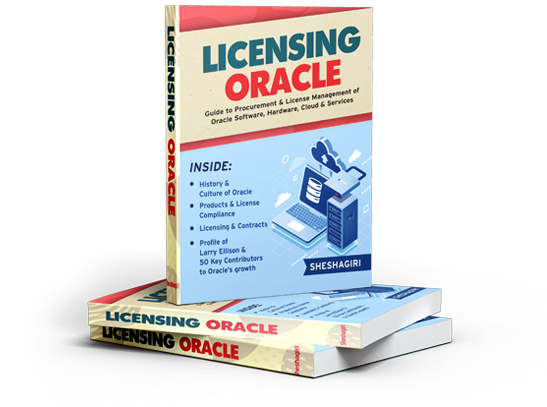Understand Java License Changes with Help from an Oracle License Consultant
Understand Java License Changes with Help from an Oracle License Consultant
Blog Article
For years, Java has been a pillar of enterprise development, relied upon for everything from desktop applications to enterprise-scale solutions. However, recent Java license changes introduced by Oracle have left many organizations uncertain about their compliance status and future financial obligations. Businesses that once used Java under free terms are now discovering that commercial use may carry significant licensing costs. Navigating these changes is no small feat, which is why working with an Oracle license consultant has become essential.
In this article, we’ll explore the impact of recent Java license changes, what they mean for your organization, and how an Oracle license consultant can guide you through the process of achieving compliance and avoiding unexpected penalties.

What Are the New Java License Changes?
Oracle introduced significant modifications to its Java licensing structure starting in 2019. Prior to that, Java SE (Standard Edition) was available for free under the Oracle Binary Code License Agreement for personal and development use. However, Oracle has shifted to a subscription-based model for commercial users, meaning businesses now need to pay to use Java in production environments.
In 2023, Oracle revised its licensing model again, transitioning to the Java SE Universal Subscription. This new model charges customers based on the total number of employees, not just the number of Java users or devices. Even if only a small percentage of your employees use Java, you may be required to license every employee under this model. This change dramatically increases costs for many businesses and complicates compliance efforts.
Who Is Affected by the Java License Changes?
The Java license changes affect a broad range of industries and organizations. If your company uses Java to run any kind of software, whether it's a back-end application server, desktop application, or embedded system, you are likely impacted. Even organizations using Java indirectly—such as through third-party applications that rely on Java—must now reevaluate their licensing obligations.
The most affected include:
Large enterprises with thousands of employees.
Organizations with legacy applications developed in Java.
IT departments relying on Java Development Kit (JDK) for maintenance and development.
Companies unaware that their third-party applications are Java-based.
Why You Need an Oracle License Consultant
Understanding Oracle’s licensing terms can be a complex and time-consuming task. That’s where an experienced Oracle license consultant becomes invaluable. These consultants specialize in helping companies interpret Oracle’s licensing policies, assess compliance status, and build strategies to reduce costs.
Here’s how an Oracle license consultant can assist your organization:
1. License Assessment and Audit Readiness
Oracle has a history of conducting aggressive software audits. A license consultant can perform an internal audit to determine whether your organization is at risk. They analyze Java deployments across your infrastructure to ensure all instances are properly licensed, minimizing the chances of a surprise audit or financial penalty.
2. Cost Optimization
Many businesses unknowingly overspend on Oracle licenses due to misunderstandings or mismanagement. An Oracle license consultant helps you evaluate alternative solutions—such as using OpenJDK or transitioning to other Java vendors—that can significantly reduce licensing costs while maintaining technical capabilities.
3. Negotiation Support
If you're currently negotiating with Oracle or planning to renew a subscription, having a consultant in your corner can be a game-changer. They understand Oracle’s pricing strategies and can help you negotiate better terms, potentially saving your business thousands of dollars.
4. Strategic Planning
Beyond immediate licensing concerns, a consultant provides long-term guidance. They help your organization build a sustainable Java strategy that aligns with your technical needs and budget, including considering migration paths away from Oracle Java where appropriate.
Exploring Alternatives to Oracle Java
Given the steep costs associated with the Java SE Universal Subscription, many companies are exploring alternatives. Options include:
OpenJDK: A free and open-source implementation of the Java Platform.
Amazon Corretto: A production-ready distribution of OpenJDK with long-term support.
Azul Zulu and Zing: Commercial Java platforms with flexible licensing models.
Adoptium Temurin: Another reliable OpenJDK distribution.
Switching to one of these alternatives can free your organization from Oracle’s licensing constraints—but migrating must be done carefully to ensure compatibility and stability. Again, this is where an Oracle license consultant provides critical guidance, helping you weigh the risks and benefits of each solution.

The Financial Risk of Ignoring Compliance
Failing to address the Java license changes can result in significant financial consequences. Oracle's audits can lead to unexpected licensing fees and legal exposure. Moreover, the cost of rectifying a non-compliant environment retroactively is often higher than proactively managing your licenses.
By bringing in an Oracle license consultant, you place your organization in a strong position to avoid these risks. Consultants help build a clear picture of your licensing needs and put you back in control of your Java strategy.
Final Thoughts
The Java license changes introduced by Oracle represent a major shift for businesses that rely on Java technology. What was once free and straightforward is now complex and potentially expensive. Organizations must take these changes seriously and ensure they are fully compliant to avoid penalties.
An Oracle license consultant serves as your guide through this challenging landscape. Whether you need to assess compliance, reduce costs, explore migration strategies, or simply understand your obligations, a consultant brings the expertise you need to make informed decisions. Report this page